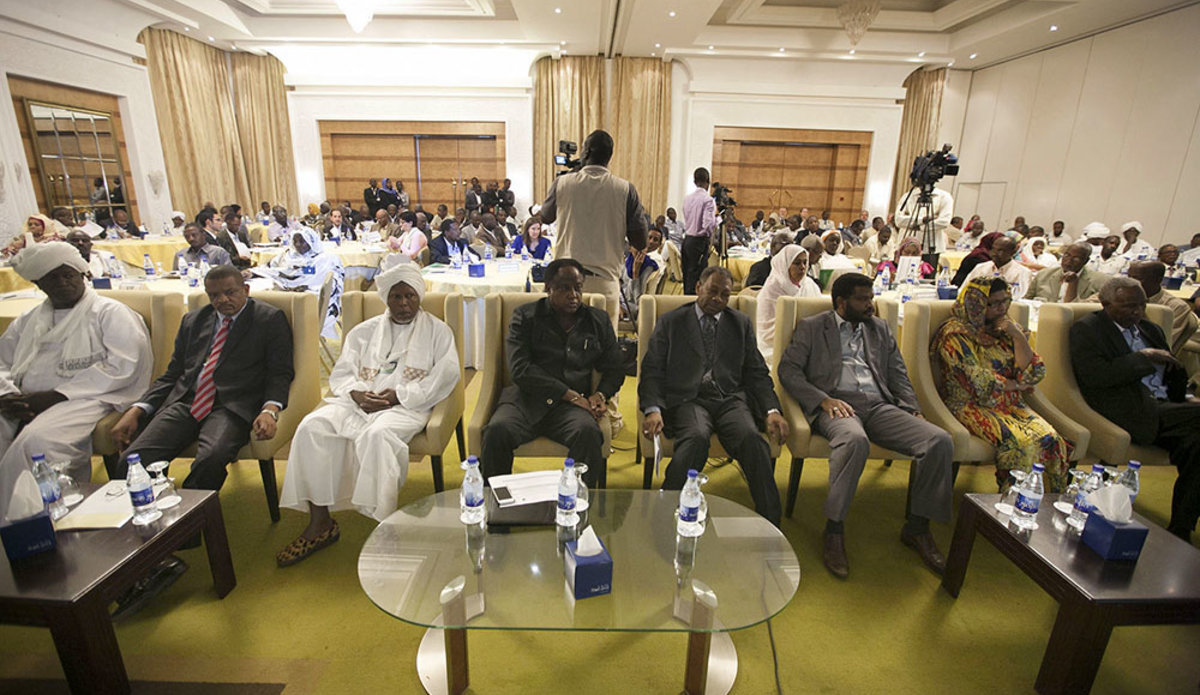UNAMID sponsors conference on land and natural resources management in Darfur
Khartoum, 21 November 2013 – Resolving land issues in Darfur, the impact of land- use on sustainable development and proper planning were the focus of a conference on the role of the Darfur Land Commission in relation to managing land and natural resources which took place in Khartoum on 20 November.
The forum jointly organized by the Darfur Land Commission and the African Union-United Nations Mission in Darfur (UNAMID) was addressed by the AU-UN Joint Special Representative, Mohamed Ibn Chambas, and the Chairman of the Darfur Regional Authority, Dr. Eltigani Seisi.
The conference brought together more than 120 participants including technical experts from Ministries of Planning, Land, Environment, Agriculture and Animal Resources, representatives of the diplomatic community and donor countries, national experts on land, university lecturers, academics , representatives from Darfur’s five states, native administration leaders, Government of Sudan and Darfur Regional Authority officials, as well as United Nations agencies.
In his opening remarks, UNAMID’s Head noted the crucial nexus between resource management and peacebuilding. He also maintained that better natural resources management has a direct effect on livelihoods, food and poverty alleviation.
“Natural resources management and land reform needs to ensure that those who have been traditionally excluded in owning and accessing land are now legally entitled to own, access and inherit land. In this context women, especially widows, need the official recognition of their rights to own, access and inherit land, as often, they are the ones toiling in the land to produce food,” Dr. Chambas said.
The JSR underscored that this conference is an important effort to bring together relevant technocrats to work out the processes and procedures necessary to meet the many needs of the people of Darfur to resolve conflicts related to land.
Dr. Seisi, on the other hand, pointed out three main challenges related to land management in the region; namely tribal land ownership under the Hawakeer (right of access or utilization) system which led to tribal conflict, lack of land registration and the way land is used.
At the end of the conference, the participants recommended to review the land ownership regulations, promote awareness of local citizens on proper use of land, develop a comprehensive natural resource and land use database and look deeper into the root causes of the conflict in Darfur and address them accordingly.
 UN
UN United Nations Peacekeeping
United Nations Peacekeeping


